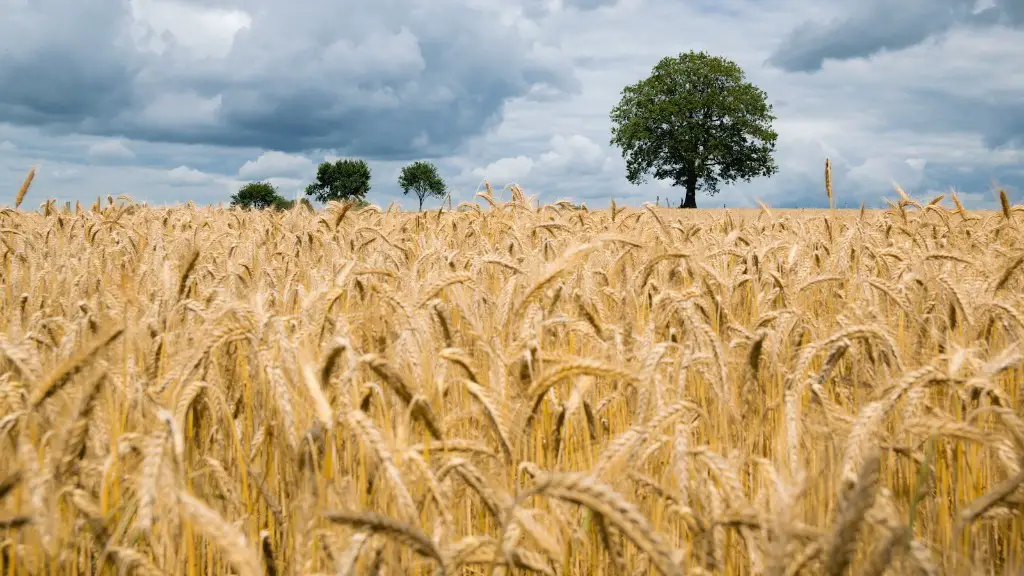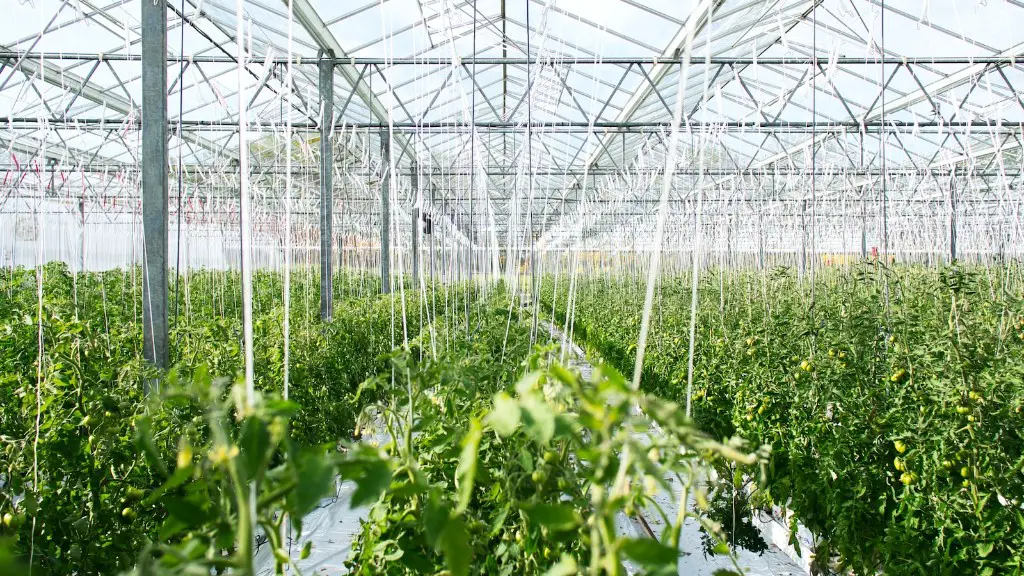Water-holding capacity is a vital factor in the success of agricultural production. It is a measure of the amount of water that soil can retain, and it affects a wide range of processes, from the growth of crops to the quality of the harvest.
The water-holding capacity of soil is the maximum amount of water it can retain at a given pressure. It is measured by the degree to which the soil can hold water against the force of gravity. The higher the water-holding capacity of soil, the higher its ability to absorb and store water. This is important in agriculture as having sufficient water at the right time is essential for plant growth and crop production.
Water-holding capacity depends on several factors such as soil texture, organic matter, bulk density, and pore size. Soil texture refers to the relative proportions of the different soil particles such as sand, silt, and clay. Soil with a higher water-holding capacity holds more water than soil with a lower water-holding capacity. The presence of organic matter such as decaying plant material also helps to increase the water-holding capacity of soil by providing more pore spaces for water to move through.
The water-holding capacity of soil also varies depending on its chemistry. Soils with a higher level of clay and salt have a lower water-holding capacity than soils with a higher level of organic matter. Special soil amendments such as compost and mulch can also help improve water-holding capacity.
It is important to know the water-holding capacity of a particular soil in order to ensure that it can provide an adequate amount of water for the plants grown in it. Soil that does not hold enough water will not provide enough water for crop growth and in extreme cases can lead to drought stress and crop loss. On the other hand, soil that holds too much water can create ideal conditions for disease and pest outbreaks.
Therefore, it is essential to have an understanding of the water-holding capacity of a particular soil in order to maintain optimal conditions for crop growth and production. This knowledge can help farmers to plan and manage their crops effectively, resulting in improved productivity and higher yields.
Role Of Organic Matter
Organic matter plays a key role in the water-holding capacity of soil. As organic matter decomposes, it forms aggregates which act like sponges and provide more pore spaces for water to move through. This helps to retain water in the soil and makes it available to plants for growth. Adding organic matter such as compost and manure to the soil helps to increase its water-holding capacity and improve its fertility.
Organic matter also adds essential nutrients to the soil, helping to improve its structure and porosity. This improved structure helps to hold more water and provides more nutrients for the plants to access. In addition, organic matter also improves soil fertility by providing a food source for beneficial soil organisms such as earthworms and microbes.
Organic matter also plays a key role in providing plant nutrients. As it decomposes, it releases essential minerals and nutrients, such as phosphorus and nitrogen, which are necessary for plant growth and development. Thus, it is essential to maintain a healthy soil by adding organic matter on a regular basis.
Organic matter also acts as an important buffer and stabilizer, helping to regulate the pH of the soil. This is important in maintaining an optimal pH level as it directly affects the availability of essential plant nutrients. Additionally, organic matter helps the soil to retain moisture and nutrients, making them available to the plants.
Therefore, organic matter is essential in maintaining a high water-holding capacity in soil and is vital for healthy and productive agricultural production.
Role of Soil Structure
Soil structure is also an important factor in water-holding capacity. Soil with a good structure has a well-developed internal architecture with more spaces for water to move through. This improves water-holding capacity as more water is held in the soil, making it available for plant growth.
Soil structure is determined by the size and shape of the individual soil particles. Large soil particles such as sand particles have a lower water-holding capacity than smaller particles such as silt and clay. The presence of organic matter also helps to improve soil structure, providing more pore spaces for water to move through.
It is important to maintain a good soil structure in order to ensure optimal water-holding capacity. Good soil structure is essential for plant growth, nutrient availability, and water infiltration into the soil. It also helps to reduce soil compaction and increase the fertility of the soil.
Therefore, maintaining a good soil structure is essential in improving water-holding capacity and ensuring healthy agricultural production.
Role of Mulch
Mulch is another important factor in improving water-holding capacity of soil. Mulches are materials such as straw, hay, sawdust, or other organic materials, which are applied to the soil surface. Mulches help to improve water-holding capacity by protecting soil from direct rainfall, reducing evaporation from the soil surface, and increasing the infiltration of water into the soil.
Mulches also act as a reservoir, slowly releasing their moisture content into the soil. This helps to maintain a consistent moisture level, reducing the risk of drought stress and increasing the water-holding capacity of the soil. Additionally, mulches help to conserve soil temperature, which is important for optimal plant growth.
Mulches also help to improve soil structure. As they decompose, they release organic matter, which helps to create aggregates in the soil, providing more pore spaces for water to move through. This improves the soil structure and helps to increase the water-holding capacity of the soil.
Therefore, mulch can play a vital role in improving water-holding capacity and helping to maintain optimal growing conditions for plants and crops.
Role Of Soil Amendments
Soil amendments are materials such as fertilizer, manure, and lime, which are added to the soil to improve its fertility and health. They help to increase the water-holding capacity of the soil by improving the structure and porosity, allowing more water to be held in the soil.
Soil amendments also add essential macro and micronutrients, which are important for building healthy soils and promoting plant growth. They help to improve water-holding capacity by adding organic matter which provides more pore spaces for water to move through.
Fertilizers also help to increase water-holding capacity by providing essential plant nutrition, which helps to promote stronger plant growth and reduce drought stress. In addition, soil amendments help to improve microbial activity, which is important for maintaining the fertility of the soil.
Therefore, soil amendments play a key role in increasing water-holding capacity of soil and promoting stronger plant growth and higher yields.
Role of Soil pH
Soil pH is an important factor in determining the water-holding capacity of soil. Soil with a higher pH has a higher water-holding capacity than soil with a lower pH. A pH level of 6.0-7.0 is the optimum range for most plants and crops, as it allows them to access essential plant nutrients and water efficiently.
Soil pH also affects the availability of certain plant nutrients, as different plant nutrients are available at different pH levels. For example, phosphorus and zinc are most available in soils with a pH level of 6.0-7.0, while iron is most available in soils with a pH level of 5.0-6.5. This is important in maintaining optimal soil fertility and water-holding capacity.
Soil pH can be adjusted by adding soil amendments such as gypsum, lime, or sulfur to the soil. These amendments help to adjust the pH level of the soil, making essential plant nutrients more available. Additionally, they can also help to improve the water-holding capacity of the soil by increasing the porosity and improving the structure.
Therefore, understanding and managing soil pH is essential for improving water-holding capacity and promoting optimal crop growth and yields.





